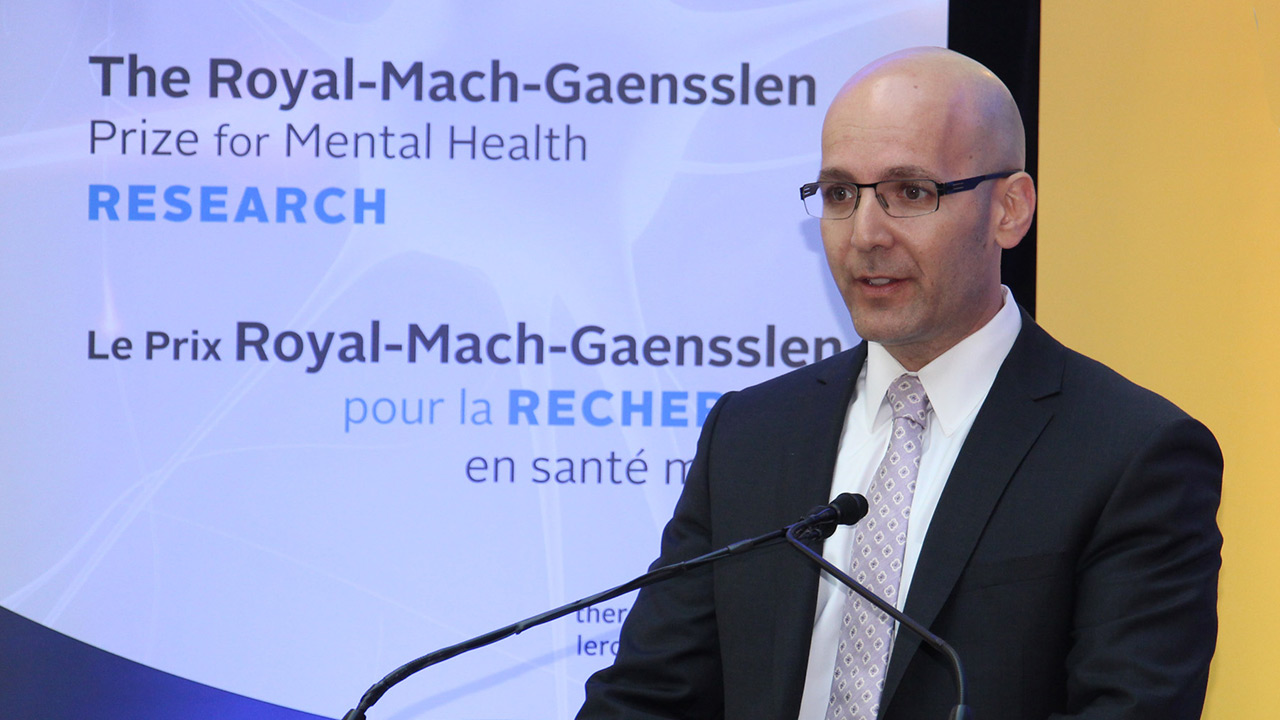Heart health of bipolar youth drives researcher
Congratulations to Sunnybrook’s Dr. Benjamin Goldstein who is the 2017 recipient of The Royal-Mach-Gaensslen Prize for Mental Health Research.
In his clinical work with youth, Dr. Goldstein works with adolescents to identify, treat and overcome their symptoms and struggles with bipolar disorder (BD), and yet he is also motivated by the harsh reality that — without scientific progress — these young people will also likely have to contend with higher risks for heart disease later in life, and associated premature death.
“Early intervention is critically important and my hope is to get to adolescents early; we want to reduce the number of poor outcomes,” says Dr. Goldstein, director of the Centre for Youth Bipolar Disorder at Sunnybrook. “One thing that particularly drew me to the treatment of BD is there is the capability to lead a totally fulsome life if symptoms are properly controlled.”
Goldstein’s research has explored the shared biology between heart health and brain health in adolescents, showing a higher prevalence and earlier onset of cardiovascular disease in people with BD. These findings led to an American Heart Association scientific statement in 2015, authored by Goldstein, recommending the addition of a mood disorder in adolescence to cardiovascular risk reduction and prevention guidelines.
“For a teen with BD, the drawbacks of being sedentary or having untreated risk factors for heart disease are significantly accentuated,” says Goldstein, also recently promoted to full professor of Psychiatry at University of Toronto. “Adding to this, cardiovascular risk factors such as diabetes and obesity negatively affect mental health and the ability to treat BD.”
In addition to gaining new insight into the causes of BD, he hopes to show that treatments typically used to help people with heart disease, such as diet, exercise, and heart medications, could also reduce or eliminate symptoms of BD.
The prestigious recognition, established in 2015, celebrates early career researchers in the area of mental health and encourages them to continue their research in Canada.
“The Royal-Mach-Gaensslen Prize rewards promising researchers who approach mental health in innovative ways. Dr. Goldstein’s focus on improving heart health for the joint purpose of improving mental health certainly fits that bill,” says Dr. Zul Merali, president and CEO of The Royal’s Institute of Mental Health Research.
“Dr. Goldstein’s unique approach could have a huge impact on research and clinical care for many people suffering from bipolar disorder, in Canada and around the world,” adds Dr. Chris Carruthers, Chair of the Mach-Gaensslen Foundation of Canada.
Most teens aren’t thinking about their heart health — but if they have bipolar disorder, they should be, says Goldstein. “Intervention should focus on the heart, not just the head. We’re pushing the field beyond recognizing that mental illness is based in your brain, to recognizing that mental illness is a multi-system disease that affects both brain and body.”
Read more about Dr. Goldstein's work:







